Our campus offers a number of general education courses to build awareness, interest, and knowledge of sustainability across the community. Below, is a sampling of such courses. If you’re a student, consider enrolling in one of these courses and help build a better society through education!

BISC 3: Environmental Science (GN)
Open to all non-science majors, this course will help students gain an understanding of the ecological principles necessary to deal with the environmental problems of our times: water use, solid waste management, global warming, energy use, conservation of natural resources, overpopulation, and the preservation of biodiversity. Students work in small teams to complete a community-based service learning project, researching an environmental issue of their choice (local, national, or global) and taking action to support community initiatives that promote sustainability.
Instructor: Mahsa Kazempour, Ph.D.
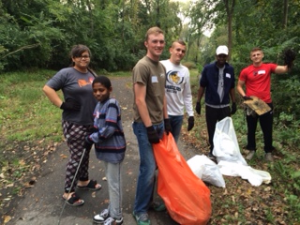
EARTH 2: The Earth System and Global Change (GN)
Open to all non-science majors, this course is an interdisciplinary introduction to the processes, interactions and evolution of Earth’s spheres (geosphere, hydrosphere, atmosphere, biosphere, and anthroposphere). Service learning, which integrates community service with classroom instruction, is an integral part of the course.
Instructor: Jayné Park-Martinez, Ph.D.
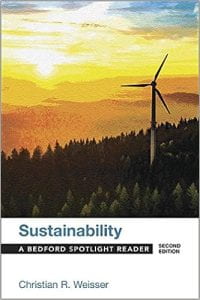
SUST 242N: Issues in Sustainability (GH, GS)
SUST 242N examines the concepts and key issues of sustainability through a variety of literary, scientific, political, and popular texts. Class discussions will trace the roots of sustainability in environmental writing, will analyze the diverse debates surrounding sustainability, and will consider local, national, and international texts about sustainability. Students will interact with invited guest speakers, conduct field research on sustainability in local communities and institutions, and create their own narratives and scenarios for sustainable futures based on their findings and speculations.
Instructor: Christian Weisser, Ph.D.
HIST 109: Introduction to U.S. Environmental History (US, GH)
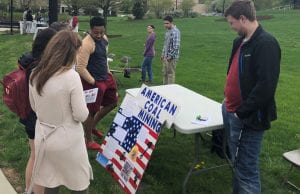
This introductory survey of American environmental history raises questions about how Americans have shaped their environment and how they have been shaped by it. The course spans a few centuries, focusing the most on the last century. We consider different aspects of the environment and emphasize that it is impossible to tell the story of U.S. history without considering the environment. In addition, students present group research projects to the wider community as part of the campus’s Earth Day observance.
Instructor: Michelle Mart, Ph.D.
HIST 111: Introduction to U.S. Food History (US, GH)
How we obtain the food we need or desire is probably the most important issue that shapes human and environmental history. This course surveys the American food system, specifically its relationship with the environment, politics, and culture. We look at the production and consumption of food from the Revolutionary period to the present day, but focus on the post-World War II and contemporary period. We consider the following questions: Why have Americans made particular food choices? How has agriculture evolved through American history? How have food and agricultural choices affected the environment and human health? How have food choices in the U.S. affected other parts of the world?
Instructor: Michelle Mart, Ph.D.
ENVST 100Q: Visions of Nature (GH, GN, interdomain)
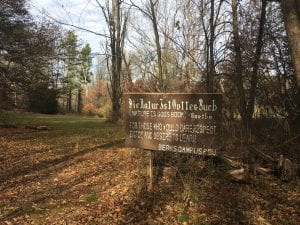
This honors course will help you draw from an array of fields—from science to art and literature to economics, ethics, and public policy—along with your own observations, experiences, and creativity to examine and synthesize different visions of nature. As an interdomain course, there is breadth in the material, activities, and assignments. As an honors course, it seeks and will reward depth, innovation, and risk-taking but is not meant to overwhelm. As a course that surveys the environmental challenges we face, it emphasizes collaborative problem-solving that combines diverse perspectives with action that has personal, local, and global implications.
Instructor: Bryan Wang, Ph.D.
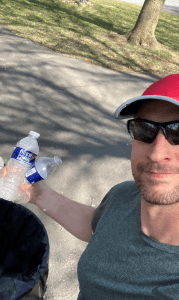
KINES 24: Lifetime Sports (GHW)
KINES 24 gives students the opportunity to explore three different sports that have the potential for lifetime participation. In the hiking module, students participate in “plogging.” Originating in Sweden, plogging is a combination of “plocka upp” (pick up) and “jogga” (jogging).
Instructor: Andrew Friesen, Ph.D.
STAT 100: Statistical Concepts and Reasoning (GQ)
Students will make statistical calculations obtained from websites, such as the Yale Institute for Climate Change, and from conducting observational studies with Sustainability topics as the research question. Sample research topics could include plastic water bottle usage (Goal 12: Responsible Consumption and Production), water usage (Goal 12: Responsible Consumption and Production), global warming data (Goal 13: Climate Action), and other relevant ideas for the broader concepts pertaining to Sustainable Development.
Instructor: Jeane Serrian